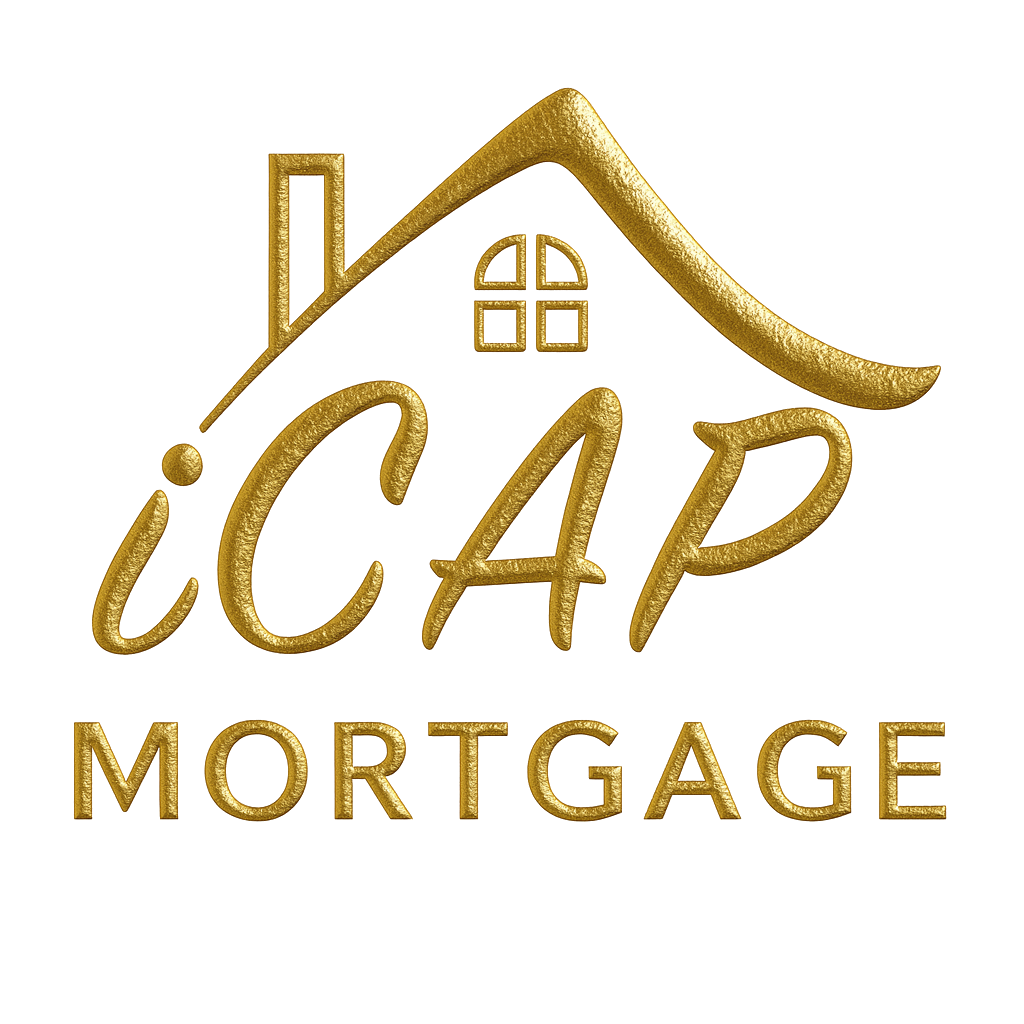REsources
Access Our Helpful Tools and Resources
Knowledge Is Power — Strategy Is Everything
You're Not Just Browsing — You're Building a Future
At iCAP Mortgage, we believe that an informed client is an empowered client — and that smart strategy beats guesswork every time. That's why we go beyond just numbers and answers. Whether you're exploring your first home, planning to refinance, or mapping out your next big investment, this Resource Center is more than just research — it's the first step in a strategy tailored just for you.
Let's turn insight into action!
newsletter
Stay ahead of the curve with insights from our expert team! Our newsletters cover a wide range of mortgage, real estate, and financial topics — helping you stay informed about market trends, financing options, and strategies for success.
Check your inbox monthly for valuable tips, industry news, and special program announcements! More newsletters coming soon!
Mortgage Calculators
Estimate your payments, affordability, and ratios easily with our free tools:
PITI
(Principal, Interest, Taxes, and
Insurance)
Estimate your full monthly mortgage payment
LTV
(Debt-to-Income Ratio)
Assess your income compared to monthly debt obligations — a key factor in loan approval
Please note: These tools provide estimates only. Actual loan terms require application, approval, and verification of financial documents.
For a full evaluation, reach out to one of our mortgage experts!
Use Loan Calculators Now!
The best time to prepare for your loan is before you find your dream home. Being overly prepared means never missing a vital document.
3%
Downpayment
Minimum for many conventional loans
30-45
Days
Average time from application to closing
620+
Credit Score
Typical minimum for conventional loans
We're just a click or call away. If you're ready to start your journey or have questions that require a tailored approach, we're
here to help.
Knowledge Pays Off - Proper prep can shave days off your closing!
Did you know?
40+
Credit Score Points
A 40-point credit score increase could save you over $100,000 in interest over the life of your loan
3x
More likely to close
Buyers with mortgage education are 3x more likely to close on their first offer
50%
Credit Score
Working with a mortgage strategist can improve approval odds by 50% or more
The right information — and the right team — can make all the difference
You've done your research.
Now let's turn it into results.
Frequently Asked Questions
If you can't find the answer you need, feel free to contact us.
Home Buying Basics
What down payment assistance programs are available?
We partner with local and national down‐payment assistance programs—grants or forgivable loans—to help eligible buyers with their upfront costs. Ask us for a list of current options.
How much down payment do I need?
It depends on the program: Conventional loans can require as little as 3%, FHA loans 3.5%, and VA/USDA loans may offer 0% down for qualified borrowers.
Do I need mortgage insurance if I put 20% down?
No. Conventional loans with at least 20% down avoid private mortgage insurance (PMI). Below 20%, PMI is typically required.
What’s the difference between pre‑qualification and pre‑approval?
- Pre‑qualification is a rough estimate based on information you provide.
- Pre‑approval requires document verification (income, credit, assets) and gives you a stronger offer power.
- Pre‑qualification is a rough estimate based on information you provide.
What credit score do I need?
Requirements vary: FHA loans can go as low as 580, while conventional loans generally prefer 620+. Credit challenged? No worries. Our tailored credit‑improvement programs partner with you to boost your score and unlock our best loan options.
How long does the mortgage process take?
On average, 30 days from application to closing—though timing can vary based on loan type, appraisal schedules, and how quickly documents are returned.
Credit & Qualification
Can I qualify if I’m self‑employed?
Absolutely, yes. We offer Bank‑Statement and other Non‑QM (non-traditional) programs designed for complex income documentation.
Will my student loans hurt my approval?
Student loans factor into your Debt‑to‑Income (DTI) ratio, but we have strategies—like income‑based payment calculations—to help manage their impact.
Specialty Loans
What is a DSCR loan?
A Debt‑Service Coverage Ratio (DSCR) loan is designed for real estate investors. Instead of using your personal income to qualify, we use the property’s rental income to determine eligibility.
How does a Reverse Mortgage work?
For homeowners 62+, a reverse mortgage converts home equity into tax‑free funds—no home sell required and no monthly mortgage payments.
What is a Texas Cash‑Out Refinance?
Texas allows homeowners to refinance their mortgage and pull ash from their home's equity, but with unique state- specific rules to protect borrowers. We are experts in navigating these guidelines.
Fixed vs. Adjustable Rate Mortgage—what’s the difference?
- Fixed‑Rate Mortgage: Your interest rate and payment stay the same for the life of the loan.
- Adjustable‑Rate Mortgage (ARM): Starts with a lower fixed rate for an initial term (e.g., 5, 7, or 10 years), then adjusts periodically based on market indexes. Ideal if you plan to move or refinance before the rate changes.
- Fixed‑Rate Mortgage: Your interest rate and payment stay the same for the life of the loan.
What is an Interest‑Only loan?
An Interest‑Only loan lets you pay just the interest (not principal) for an initial period—often 5–10 years—resulting in lower monthly payments up front. After that, you begin paying principal plus interest, so it’s best if you plan to sell, refinance, or expect a jump in income before payments increase.
Application & Process
What documents do I need to apply?
Typically:
- Last 2 years of W‑2s & tax returns (business returns for self‑employed)
- Recent pay stubs
- Bank statements
- Valid ID
- Proof of assets/savings
We'll provide a full checklist one you start your application! APPLY HERE
- Last 2 years of W‑2s & tax returns (business returns for self‑employed)
When should I get pre‑approved?
Ideally, before you start seriously shopping for a home. A pre-approval gives you a clear budget and strengthens your offer when you find the right property.
Will applying hurt my credit?
A mortgage credit pull is considered a “soft” inquiry, similar to checking your own credit. If you shop multiple lenders within a short window (usually 14–45 days), all pulls typically count as a single inquiry.
General
Can I buy and renovate at the same time?
Yes! Renovation loan options let you finance home improvements into your mortgage.
What are closing costs?
Closing costs include lender fees, title/escrow charges, appraisal fees, and insurance—typically 2–5% of the loan amount. We provide a Closing Cost Estimate upfront.
What is PITI?
Principal, Interest, Taxes, & Insurance—the four components that make up your total monthly mortgage payment.
What is LTV?
Loan‑to‑Value ratio: the percentage of the home’s value you’re borrowing. (e.g., $180K loan on a $200K home = 90% LTV)
What is DTI?
Debt‑to‑Income ratio: your total monthly debt payments divided by gross monthly income. A key factor in mortgage approval.
Who can benefit from iCAP Mortgage services?
Anyone looking to buy, refinance, invest, or consolidate debt. From first‑time homebuyers and seasoned investors to retiring homeowners and busy self‑employed professionals, we have a program to fit your goals.
Continuing Education
What makes your CE classes for real estate agents so unique?
Our CE courses are taught by seasoned mortgage pros, packed with real‑world case studies, networking opportunities, and free co‑branded marketing materials—giving agents immediate value and a competitive edge.
Still Have Questions?
We’re here to help—512-970-4663 or Schedule a Free Consultation and get real answers from a real expert.






